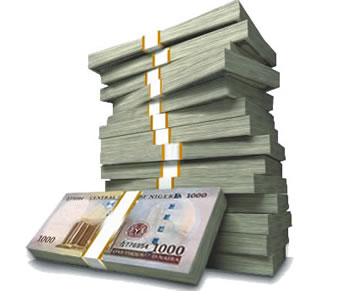P
PressRoom
Guest
If you have not been saving regularly or have not been prudent with your spending before now, your bank account may suffer a serious drain during an economic recession.
To increase your wealth and reduce the effect of depression on your finances, adjust your personal banking habit by following these rules.

1. Use less of your credit card: Stay away from unnecessary loans or debts. A debit card will give you access to only the money you have in your account, but credit cards can cause you to spend more than you have in your account. So, use your credit card less to stay out of debt.
2. Transfer idle money to fixed deposit: Many people leave their idle funds in current accounts and pay heavy charges on it. If you know you won’t need the funds very soon, look for banks with competitive interest rates where you can fix the funds and earn some interest.
3. Create emergency fund: Emergency fund is the money you save to help you adjust to your financial needs when you run out of funds. If your business goes down due to an economic recession or wrong financial decisions, you can fall back on emergency funds. You don’t have to spend all your income. Build the habit of consciously saving part of your money in a bank account, which can be earning interest. This money can also be channelled into investment if you have a lofty idea later.
You could give yourself targets to save a specific amount every month so that if you run into any financial trouble, you don’t have to start looking for loans or borrowing from friends.
4. Draft your budget: Draft a budget that is suitable for your income and which can allow you to still save after incurring your expense. Know how much you earn every month and how much you are saving. Create a list of preferences and spend according to the relevance on the list. Do not spend outside your budget in order to not violate your savings rule.
5. Avoid frivolous spending: During periods of abundance, you probably have a lot of money to throw away, but in periods of recession, you need to understand that you cannot be spending anyhow. You have to do away with things that can reduce your bank deposits like spending on parties, buying expensive things you don’t really need just to please people around you.
6. Use your savings account more: Every savings you make will contribute somehow to your account. If you feel some money is not relevant and you continue to spend anyhow, overtime, you will discover it could have increased your bank balance.
Make regular deposits into your savings account so that it can yield a little interest and not attract charges. Withdrawing from your savings account will incur charges that may drain your account; allow the funds to stay longer in savings accounts if possible. Keeping your money in a current account will cause your bank to deduct regular charges from it.
Source: PUNCH
To increase your wealth and reduce the effect of depression on your finances, adjust your personal banking habit by following these rules.

1. Use less of your credit card: Stay away from unnecessary loans or debts. A debit card will give you access to only the money you have in your account, but credit cards can cause you to spend more than you have in your account. So, use your credit card less to stay out of debt.
2. Transfer idle money to fixed deposit: Many people leave their idle funds in current accounts and pay heavy charges on it. If you know you won’t need the funds very soon, look for banks with competitive interest rates where you can fix the funds and earn some interest.
3. Create emergency fund: Emergency fund is the money you save to help you adjust to your financial needs when you run out of funds. If your business goes down due to an economic recession or wrong financial decisions, you can fall back on emergency funds. You don’t have to spend all your income. Build the habit of consciously saving part of your money in a bank account, which can be earning interest. This money can also be channelled into investment if you have a lofty idea later.
You could give yourself targets to save a specific amount every month so that if you run into any financial trouble, you don’t have to start looking for loans or borrowing from friends.
4. Draft your budget: Draft a budget that is suitable for your income and which can allow you to still save after incurring your expense. Know how much you earn every month and how much you are saving. Create a list of preferences and spend according to the relevance on the list. Do not spend outside your budget in order to not violate your savings rule.
5. Avoid frivolous spending: During periods of abundance, you probably have a lot of money to throw away, but in periods of recession, you need to understand that you cannot be spending anyhow. You have to do away with things that can reduce your bank deposits like spending on parties, buying expensive things you don’t really need just to please people around you.
6. Use your savings account more: Every savings you make will contribute somehow to your account. If you feel some money is not relevant and you continue to spend anyhow, overtime, you will discover it could have increased your bank balance.
Make regular deposits into your savings account so that it can yield a little interest and not attract charges. Withdrawing from your savings account will incur charges that may drain your account; allow the funds to stay longer in savings accounts if possible. Keeping your money in a current account will cause your bank to deduct regular charges from it.
Source: PUNCH
Last edited by a moderator:

